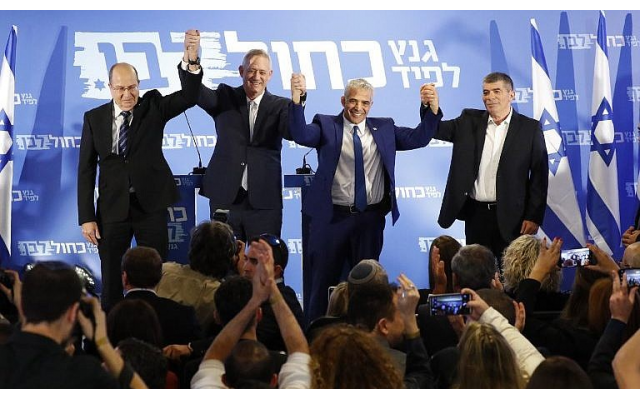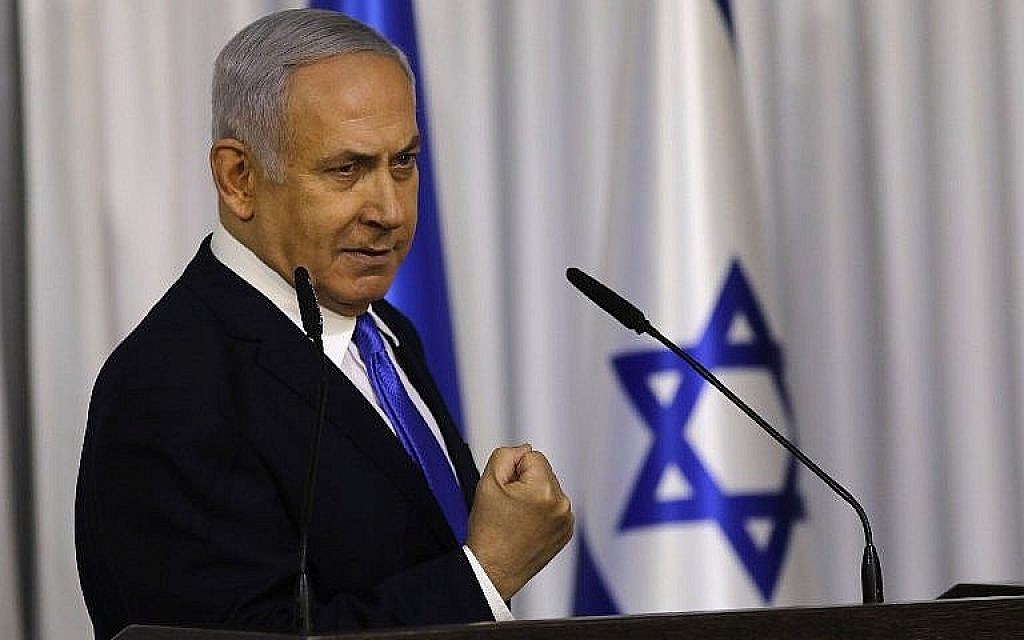Israeli Election Scorecard
The run-up to the April 9 election of a new Knesset has been a balagan. A record 47 parties are contesting for the 120 Knesset seats.
Dave Schechter is a veteran journalist whose career includes writing and producing reports from Israel and elsewhere in the Middle East.

Balagan is a word Israelis use to describe something chaotic, confusing, or messy. The run-up to the April 9 election of a new Knesset has been a balagan.
A record 47 parties are contesting for the 120 Knesset seats.
When Israelis vote, they choose a slip of paper marked with a letter representing the party of their choice, place that slip into an envelope, and the envelope into a box.
The Times of Israel reported that to cover every possible vote by 6,339,279 eligible voters, at 10,720 polling stations, election officials have printed 400 million slips of paper (enough for every vote, plus extras).
Maybe a dozen parties will receive enough votes – at least 3.25 percent, by law – to win seats in the parliament.
Israel’s president will ask the party seen as having the best chance of creating a majority bloc in the Knesset to form a government. Which party is given that task may depend on whether their smaller allies attain that 3.25 percent threshold.
Prime Minister Benjamin Netanyahu’s Likud party is seeking to maintain the current right-wing government. If successful, Netanyahu would surpass David Ben-Gurion in July as Israel’s longest-serving premier.
The election has become a referendum on Netanyahu, as a person and as a politician.
Israel’s attorney general has said that after the election, he intends to indict Netanyahu in connection with three corruption cases.
Netanyahu has dismissed the allegations as small potatoes whipped up by a legal system that can’t be trusted, leftists who would endanger Israel, and a media that hates him.
Meanwhile, say his supporters, “Bibi” has expanded Israel’s relations with various Arab nations, fostered a friendship with U.S. President Donald Trump, maintained the status quo with the Palestinian Arabs, and presided over a healthy economy.

“Because Netanyahu has dominated politics for so long, there isn’t a clear process of a successor. Neither Likud nor the opposition parties have been able to nurture a successor from within their ranks,” journalist Anshel Pfeffer recently wrote in the Israeli security journal, Fathom.
Likud’s chief challenger is a new center-right party whose name, Kachol v’Lavan, means Blue and White, the colors of Israel’s flag.
Blue and White was formed by merging: the new Israeli Resilience party, led by Benny Gantz, former chief of staff of the Israel Defense Forces; with Yesh Atid, a current centrist party in the Knesset led by Yair Lapid; and Telem, another new party led by Moshe Ya’alon, also a former IDF chief. The fourth notable in Blue and White is Gabi Ashkenazi, another former chief of staff.
Gantz and Lapid are the party’s primary public faces.
The presence of former IDF chiefs may make Netanyahu’s claim that Blue and White is soft on security a more difficult sell.
Gantz has said that he will repair the strains between Israel and the majority of American Jews, which he blames on Netanyahu, stemming from such issues as pluralistic prayer at the Western Wall and disrespect for non-Orthodox Judaism, in general, and government policies in the West Bank, also known as Judea and Samaria.
No single party has ever won a Knesset majority outright, so either Likud or Blue and White will turn to smaller parties to create a Knesset majority. Polls have shown several parties hovering above or below the critical 3.25 percent threshold.
Neither Likud nor Blue and White has an easy route to forming a government.
In 2015, Likud won 30 seats and allied with smaller rightist, nationalist, and religious parties. This year, that would include the New Right party, created when Education Minister Naftali Bennett and Justice Minister Ayelet Shaked bolted from Likud. (Shaked’s “Facism” perfume commercial is a must-see.)
Religious Jews from the Ashkenazi community back United Torah Judaism, which favors Orthodox control of all matters religious and opposes young ultra-Orthodox men being forced to serve in the IDF.
Netanyahu potentially could add Shas, representing religious Jews from the Sephardic community; Yisrael Beytenu, led by former defense minister Avigdor Liberman; Kulanu, led by former finance minister Moshe Kahlon; and Zehut, a libertarian party led by Moshe Feiglin, former deputy speaker of the Knesset.
Controversy surrounds the merger Netanyahu engineered between the Jewish Home and Jewish Power parties, the latter led by followers of the late Rabbi Meir Kahane, whose own Kach party was banned nearly 30 years ago because of racism and incitement to violence. Israel’s Supreme Court banned one of Jewish Power’s leaders from this year’s ballot.
Blue and White would need to align with what remains of the once-vaunted Labor party (think Meir, Rabin, and Peres); Meretz, a left-wing Zionist party; and possibly Gesher, led by former Yisrael Beytenu member Orly Levy-Abekasis.
To reach a “blocking majority” against the Likud, Blue and White might turn to parties representing the 21 percent of Israeli citizens who are Arab.
There are two such tickets in this election: Hadash (a Jewish-Arab party) is running jointly with the Taal party, backing statehood for the Palestinian Arabs, while the combined Balad-Raam favors Israel as a secular state for all its citizens.
Whether Blue and White would meet conditions that the Arab parties might set, including repeal of the Nation-State Law and resumption of serious negotiations with the Palestinians, remains to be put to a test.
Netanyahu has employed the slogan “Bibi not Tibi,” referring to Ahmad Tibi, an Arab member of the Knesset from the Taal party.
Blue and White also must deal with what Pfeffer termed a “poison pill clause” stemming from its creation, under which 2 1/2 years into a four-year term, the premiership would rotate from Gantz to Lapid.
Chaotic, confusing, messy? Such is the balagan that is Israeli politics.



comments